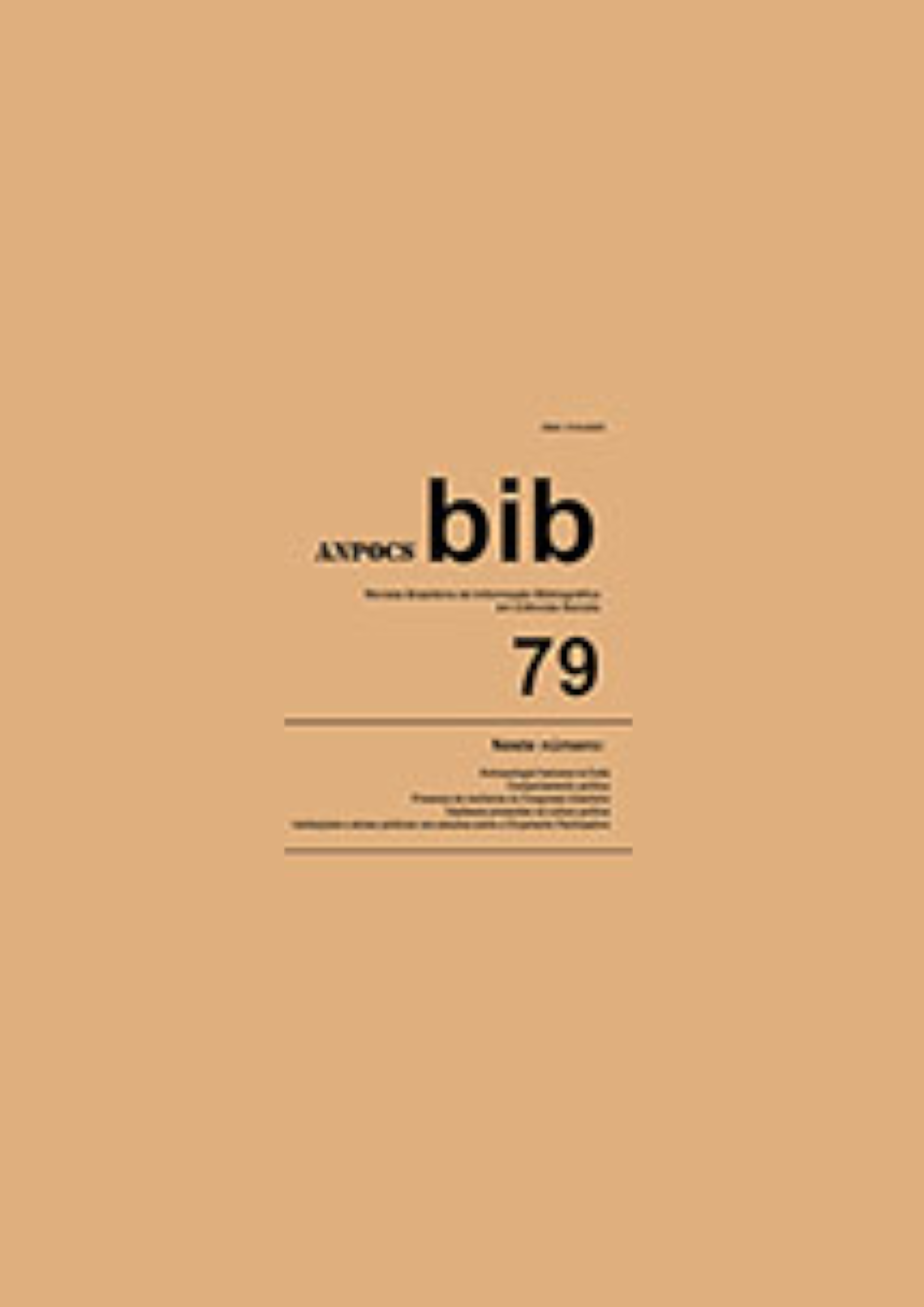Homo Hierarchicus
la trajectoire d’un classique de l’anthropologie
Mots-clés :
Inde, Castes, Sciences sociales, Post-colonialisme, Études subalternesRésumé
L’article propose un bilan critique d’une œuvre classique de l’anthropologie française des années 1960. Cependant, au lieu de reconstruire son impact sur les sciences sociales venant du Nord – ce qui est plus usuel - nous examinons sa réception par l’univers académique et intellectuel du Sud. Il s’agit de l’œuvre Homo Hierarchichus – le système des castes et ses implications (1966), de l’anthropologue français Louis Dumont, sujet d’un débat entre scientistes sociaux Indiens depuis des décennies. Nous avons l’intention de discuter comment les différentes critiques à ce travail au fil du temps témoignent non seulement de changements de paradigmes et d’épistémologie des sciences sociales et les réponses à des changements sociaux mais aussi de quelle façon le développement de la propre discipline dans le Sud global et sa double-herméneutique de la recherche et de la réalité sociale à l’échelle mondiale ont contribué à ces changements.
Téléchargements
Références
ALEXANDER, J. The Centrality of the Classics. In: TURNER, S. (ed.). Social theory and sociology: the classics and beyond. Oxford: Blackwell Publishers, 1996
APPADURAI, A. Putting Hierarchy in Its Place. Cultural Anthropology, [S.l.], Vol. 3, No. 1, p. 36-49, 1988.
______. In homo hierarchicus? In: KARE, R. S. (ed.). Caste, hierarchy and individualism: Indian critiques of Louis Dumont’s contributions. New Delhi: Oxford University Press, 2006. p. 177-191.
BÉTEILLE, A. Obituary: Louis Dumont (1911-98). Economic and Political Weekly, Mumbai, p. 14-15, 9 jan. 1999.
______. Caste, class and power: changing patterns of stratification in a Tanjore village. 2. ed. New Delhi: Oxford University Press, 2002.
BOIVIN, N. Orientalism, ideology and identity: examining caste in South Asian Archeology. Journal of Social Archeology, [S.l.], v. 5, n. 2. p. 225 252, 2005.
CHATTERJEE, P. An immanent critique of caste. In: KARE, R. S. (ed.). Caste, hierarchy and individualism: Indian critiques of Louis Dumont’s contributions. New Delhi: Oxford University Press, 2006. p. 169-176.
CONNELL, R. A iminente revolução na teoria social. Revista Brasileira de Ciências Sociais, São Paulo, v. 27, n. 80, p. 9-20, 2012
DAS, V. The Antrophological discourse on India: reason and its other. In: KARE, R. S. (ed.). Caste, hierarchy and individualism: Indian critiques of Louis Dumont’s contributions. New Delhi: Oxford University Press, 2006. p. 192-205.
DAS, V.; UBEROI, J. P. S. Elementary structure of caste. In: KARE, R. S. (ed.). Caste, hierarchy and individualism: Indian critiques of Louis Dumont’s contributions. New Delhi: Oxford University Press, 2006. p. 65-75.
DUBET, F. Why Remain “Classical”? European Journal of Social Theory, [S.l.], v. 10, n. 2, p. 247–260, 2007.
DUMONT, L. O individualismo: uma perspectiva antropológica da sociedade moderna. Rio de Janeiro: Rocco, 1985.pesquisador-informante implicada em pesquisas conduzidas por europeus e norte-americanos em solo indiano. O diálogo com a obra de Dumont foi parte de uma reflexão mais ampla dos indianos a respeito da posicionalidade dos cientistas sociais, do papel dos pesquisadores como agentes de construção do próprio campo científico e da definição de consensos no interior da disciplina. Além disso, ele tensionou as premissas em torno das quais a sociologia e antropologia do Norte organizam suas pesquisas no Sul, desafiando a divisão internacional do trabalho científico.
______. Homo hierarchicus: o sistema de castas e suas implicações. São Paulo: Edusp, 1997.GAVASKAR, M. Colonialism within colonialism: Phule’s critique of Brahmin Power. In: MICHAEL, S. M. (org.). Dalit in modern India. New Delhi: Sage Publications, 2007. p. 91-107
GANDHI, L. Postcolonial theory: a critical introduction. New York: Columbia UP, 1998.
HEREDIA, R. C. Subaltern alternatives on caste, class and ethnicity. Contributions to Indian Sociology, [S.l.], v. 34. p. 37-62, 2000.
KHARE, R. S. Dumontian sociology and since: challenges facing South Asian anthropology. In: KARE, R. S. (ed.). Caste, hierarchy and individualism: Indian critiques of Louis Dumont’s contributions. New Delhi: Oxford University Press, 2006. p. 206-212.
LITTLE, D. Varieties of social explanation: an introduction to the philosophy of social science. Summertown, Oxford: Westview Press, 1991.
MADAN, T. N. Louis Dumont 1911-1998: a memoir. Contributions to Indian Sociology, [S.l.], v. 33, n. 3, p. 473-501, 1999.
MICHAEL, S. M. (org.). Dalit in modern India. New Delhi: Sage Publications, 2007.
MITRA, S. Caste, democracy and the politics of community formation in India. In: SHARMA, U. M.; SEARLE-CHATTERJEE, M. Contextualising caste: post-dumontian approaches. Oxford: Blackwell Publishers, 1994. p. 49-70
NAGLA, B. K. Indian Sociological Thought. New Delhi: Rawat Pub, 2008.
NANDY, A. The intimate enemy: loss and recovery of self under colonialism. New Delhi: Oxford University Press, 2007.
PEIRANO, M. A Índia das aldeias e a Índia das castas: reflexões sobre um debate. Revista de Ciências Sociais, Rio de Janeiro, vol. 30, n. 1, p. 109 122, 1987. Dados.
______. Trilhas indianas da antropologia. Anuário Antropológico, Rio de Janeiro, v. 94, p. 293-300, 1995.
QUIGLEY, D. Is a theory of caste still possible? In: SHARMA, U. M.; SEARLE-CHATTERJEE, M. Contextualising caste: post-dumontian approaches. Oxford: Blackwell Publishers, 1994. p. 25-48
SHARMA, U. M.; SEARLE-CHATTERJEE, M. Contextualising caste: post-dumontian approaches. Oxford: Blackwell Publishers, 1994.
SHETH, D.L. Caste and class: social reality and political representations. In: SHAH, G. (org.). Caste and democratic politics in India. New Delhi: Permanent Black, 2002. p. 209-233
SPIVAK, G. C. Can the subaltern speak?. In: NELSON, C.; GROSSBERG, L. Marxism and the interpretation of culture. Chicago: University of Illinois Press, 1988. p. 271-313
SRINIVAS, M. N. The caste system in India. In: BÉTEILLE, A. (org.). Social inequality: selected readings. Middlesex: Penguin Books, 1969. p. 265-272.
______. Some reflections on the nature of caste hierarchy. Contributions to Indian Sociology, [S.l.], v. 18, n. 3, p. 151-167, 1984.
WEISSKOPF, T. E. Affirmative action in the United States and India: a comparative perspective. Londres: Routledge, 2004.
WOLPERT, S. A New History of India. New York: Oxford University Press, 2004.
ZWART, F. Practical knowledge and institutional design in India’s affirmative action policy. Anthropology Today, [S.l.], v. 16, n. 2, p. 4-7, 2000.





